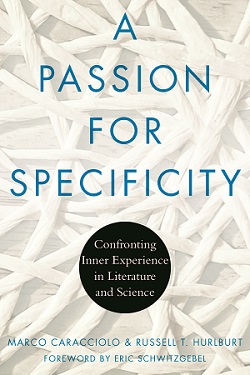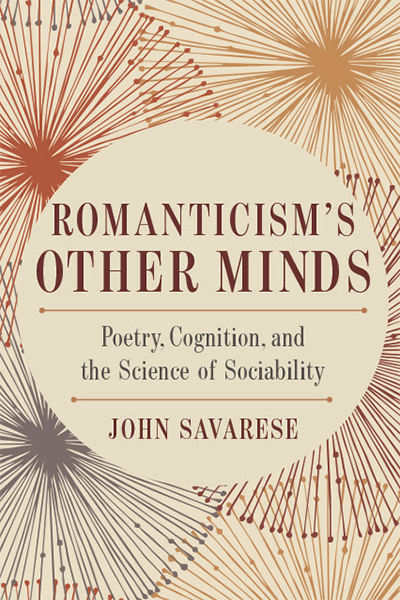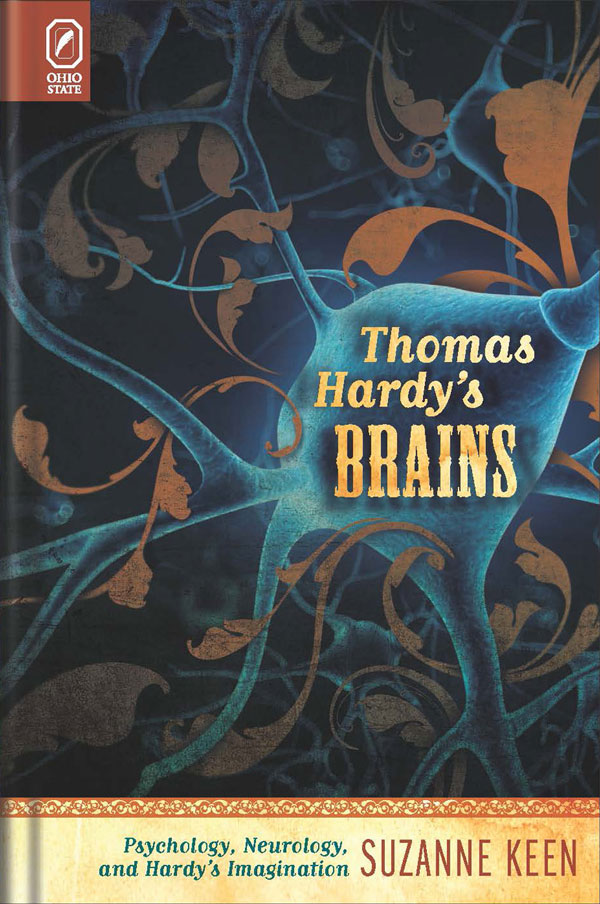“John Savarese shows how writers wanted to think of the inner mind as also a social mind, and thus the implications of Savarese’s work for thinking about Romantic politics are enormous” —Mark Canuel, author of Justice, Dissent, and the Sublime
“Romanticism’s Other Minds makes a highly original contribution, adding something genuinely new to the discussion of poetry and cognition.” —Alan Richardson, author of The Neural Sublime: Cognitive Theories and Romantic Texts
In Romanticism’s Other Minds: Poetry, Cognition, and the Science of Sociability, John Savarese reassesses early relationships between Romantic poetry and the sciences, uncovering a prehistory of cognitive approaches to literature and demonstrating earlier engagement of cognitive approaches than has heretofore been examined at length. Eighteenth- and early nineteenth-century writers framed poetry as a window into the mind’s original, underlying structures of thought and feeling. While that Romantic argument helped forge a well-known relationship between poetry and introspective or private consciousness, Savarese argues that it also made poetry the staging ground for a more surprising set of debates about the naturally social mind. From James Macpherson’s forgeries of ancient Scottish poetry to Wordsworth’s and Coleridge’s Lyrical Ballads, poets mined traditional literatures and recent scientific conjectures to produce alternate histories of cognition, histories that variously emphasized the impersonal, the intersubjective, and the collective. By bringing together poetics, philosophy of mind, and the physiology of embodied experience—and with major studies of James Macpherson, Anna Letitia Barbauld, William Wordsworth, and Walter Scott—Romanticism’s Other Minds recovers the interdisciplinary conversations at the heart of Romantic-era literary theory.
John Savarese is Associate Professor at the University of Waterloo.
Contents
Acknowledgments
Introduction
Chapter 1 Poetry, Conjecture, and Experiment
Chapter 2 Ossian’s Folk Psychology
Chapter 3 Barbauld and the Growth of the Poet’s Mind
Chapter 4 Wordsworth’s Scattered Minds
Chapter 5 “Incoherent Song”: Scott and the Margins of Sociability
Afterword Reading One’s Own Mind
Bibliography
Index
Related Titles:

A Passion for Specificity
Confronting Inner Experience in Literature and Science
Marco Caracciolo and Russell T. Hurlburt
Foreword by Eric Schwitzgebel




